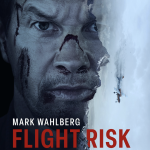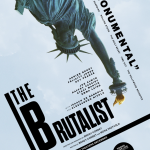A family becomes convinced they are not alone after moving into their new home in the suburbs.
Chuck says:
Steven Soderbergh has always struck me as an artist who’s easily bored. Tired of Hollywood machinations, he at one point “retired” from the industry, only to come back with a series of low-budget features that eschewed the style and intent of his previous hits, “Ocean’s Eleven” and “Traffic.” He made a micro-budget movie with non-actors (“Bubble”), shot a film on his I-Phone (“Unsane”) and made a deal with HBO to release features that studios didn’t want to take a chance on (“Behind the Candelabra,” “No Sudden Move.”) Eschewing any worry about box office returns or awards, the director has created an eclectic filmography consisting of intriguing movies that, while not always successful, continue to challenge viewers.
His latest, “Presence,” is a Jekyll-and-Hyde exercise, an initially intriguing take on the ghost story genre that ultimately falls victim to its cliches. Shot with one camera, the perspective of the entire movie is seen through that of a tortured spirit. It’s simple change, but as seen with the recent “In a Violent Nature,” a small adjustment can completely alter the way in which a story is told and perceived. Initially, Soderbergh’s approach proves unnerving, yet in service to David Koepp’s hackneyed script, it soon becomes tedious.
The film begins with an open house, the realtor, Cece (Julia Fox), scurrying about, confident she’ll be able to move the spacious, classic Victorian in question. As the agent takes Chris (Chris Sullivan), Rebekah (Lucy Liu) and their teen children, Chloe and Tyler (Callina Liang and Eddy Mady) on a tour of the home, this allows Soderbergh the opportunity to familiarize the viewer with the space, the spirit following them about, going from room to room, getting familiar with those it will be living with.
Throughout, scenes fade to black and jump ahead to indeterminate times in the future. We see the family move in, detect tension growing between the adults, see Rebekah engage in some dubious business practices, witness her dote on Tyler, resulting in Chole feeling alienated and seeking solace with her father. We witness all of this from the perspective of the ghost, who travels indiscriminately through the house, eavesdropping on the family at will.
Initially, this approach proves effective as Soderbergh often moves the camera in on and lets it sit next to the characters. Their ignorance of the entity’s close proximity to them proves unnerving, as we wait for it to make its presence known. As their actions become more and more intimate, the voyeuristic nature of this exercise leads to genuinely tense moments.
However, that’s as far as it goes, the director content with making the viewer uncomfortable and nothing more. A hoary subplot concerning two of Chole’s friends having died under mysterious circumstances is introduced, a development that comes off as labored rather than inspired. What develops for it is not a horror story but a rather tepidly executed thriller which, due to the film’s omniscient perspective, never generates any suspense. Scenes in which Chloe finds herself in peril never seem all that dire as it becomes obvious early on where the threat lies and the household spirit will somehow intervene. In the end, Koepp employs a “Fantasma ex machina” that lands with the thud.
When all is said and done, “Presence” is not so much a movie as it is an exercise. Focusing most on the technique used in making it, Soderbergh has delivered a half-baked diversion, its narrative foundation not strong enough to support its overt stylistic approach.
2 Stars




